The Walking Dead 5 Ways Negan Is Different In The Comics (& 5 Ways Hes The Same)
Negan went through a lot of changes in his transition from the page to the screen, whether it was his colorful language, storylines, or relationships.
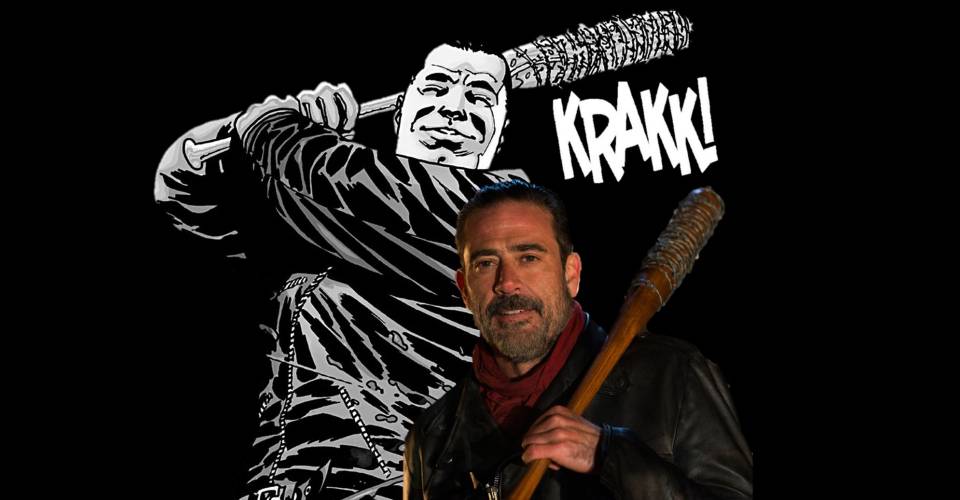
First making his debut in issue #100 of Robert Kirkman's graphic novel, The Walking Dead, Negan was already a fan-favorite for his charismatic yet frightening persona, but the character gained that much more traction with fans when actor Jeffery Dead Morgan took on the role of the iconic barbed-bat swinging antagonist in AMC's hit show.
Just like any other Kirkman's character brought onto the small screen, Negan went through a lot of changes, whether it was his colorful language, storyline, or his relationship with other zombie-apocalypse survivors. Yet, despite all the different emotions fans felt watching and reading about this character, in many ways, he never really changed. Negan's transition from a villain to a hero is a truly exciting one, but it's no more a result of him growing as a character than it is of viewers getting to know him better. This makes him an equally compelling and complex antagonist as his comic counterpart.
10 Different: His Physical Appearance
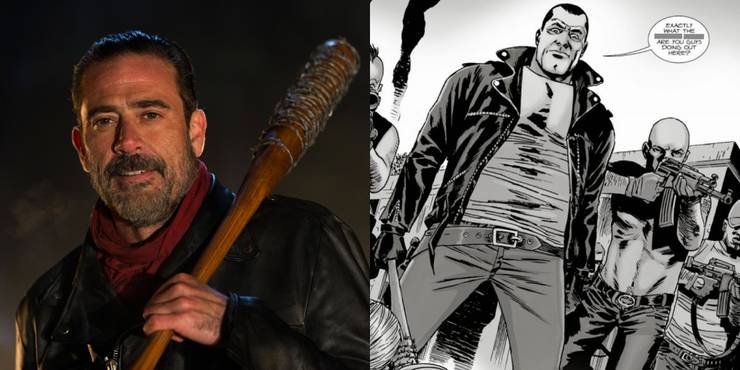
Starting with the obvious, both readers and viewers will agree that comics' Negan seems more physically intimidating than his onscreen version. Compared to Jeffrey Dean Morgan, who has a slim physique, Negan in the comics is somewhat younger and more heavily built, with broad muscular shoulders and a visible cleft chin since he's, for the most part, smoothly shaven. After all, he's based on an American musician and actor Henry Rollins, who was almost cast as this famous villain.
So, besides the fact that both characters share the same fashion taste (aka the iconic leather jacket) as well as dark facial features – although Morgan's beard is quite grey at this point in the show – it's evident which of the two looks more terrifying swinging Lucille around.
9 Same: His Unusual Bond With Lucille
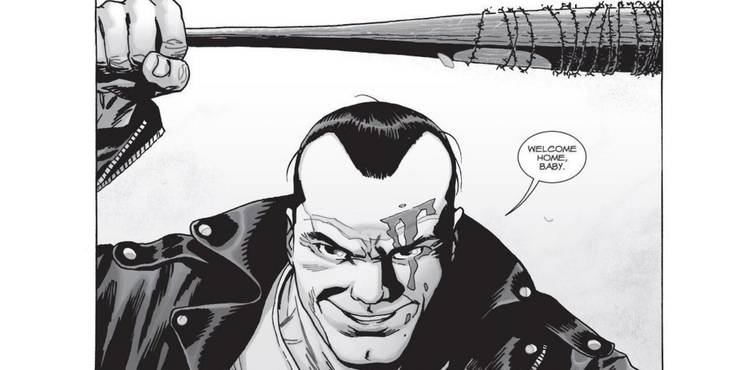
Both in the comics and the show, the name "Lucille" represents Negan's two greatest loves of his miserable life. One of them was a baseball bat wrapped in barbed wire, and the other was his deceased wife, who he named it after.
This is where things get interesting, since Negan developed a strange obsession for his favorite weapon of choice, speaking of the wooden bat as if it were a human being. Moreover, he treats his "dirty girl" better than some of his fellow zombie apocalypse survivors who she oftentimes ends up killing.
8 Different: He's Vulgar, Like A LOT
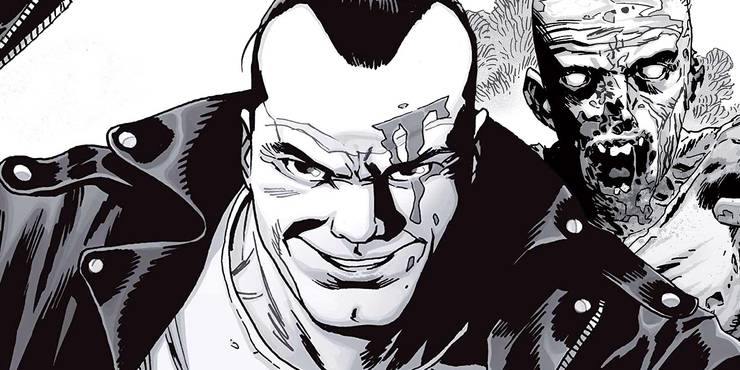
Compared to his censored TV series counterpart, comics' Negan is quite notable for having a potty mouth to the extent that it's almost comical. In fact, finding a speech bubble that's free of any of his F-bomb variations is certainly rarer than dying of natural causes in The Walking Dead universe.
But, unlike the comics, where this bad habit has just become part of his badass character charm among fans, the onscreen version never swears that much, except in Morgan's uncensored (and therefore deleted) first scene that contains 23 swear words in total.
7 Same: His Moral Code
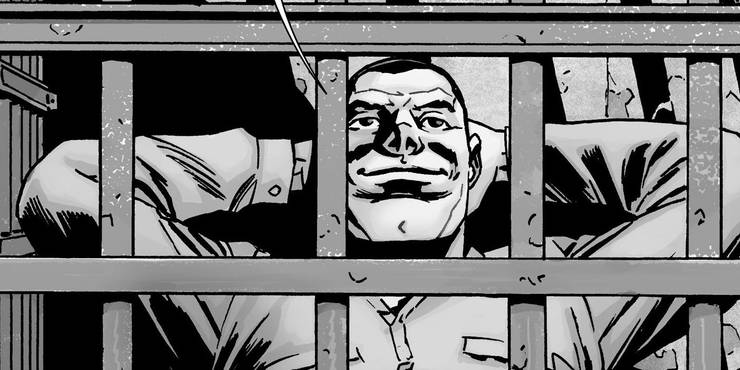
It seems that both versions are on the same page when it comes to Negan's moral values. Believing that the strongest society members are obligated to protect the powerless, Negan is, in both cases, defensive of the weak – especially of children. He might be a cruel murderer sometimes, but as a former gym teacher, his kindness towards the youngest remains unchanged.
Plus, his onscreen counterpart also disapproves of sexual violence so, aside from Negan's weird harem situation at the Sanctuary, both versions killed men who wanted to violate their no rape policy.
6 Different: He Doesn't Get To Know Judith
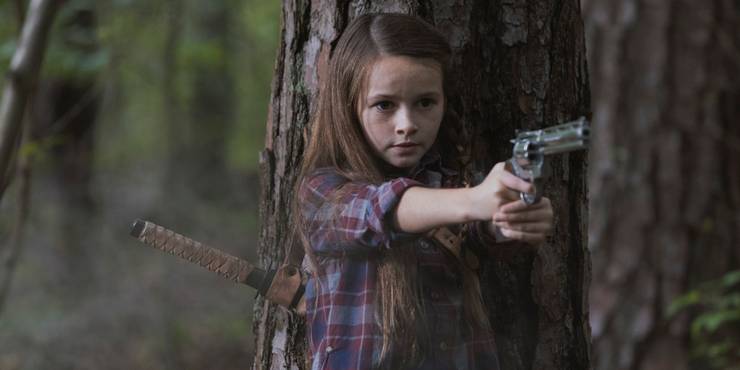
No fan probably expected that the TV show's version of Negan would develop a close bond with Rick Grimes's adoptive daughter. However, since season 9, he went from being Judith's math tutor to her ballsy guardian when he saved her from certain death in a blizzard.
Throughout the series, Negan has shown many times that he has a soft spot for children, so his affection for a bright young girl who might lack a father figure isn't that surprising after all. Nevertheless, their wholesome friendship never gets to happen in the comics because Judith died as an infant long before the events with Negan and his Saviors occurs.
5 Same: He's Fiercely Intelligent
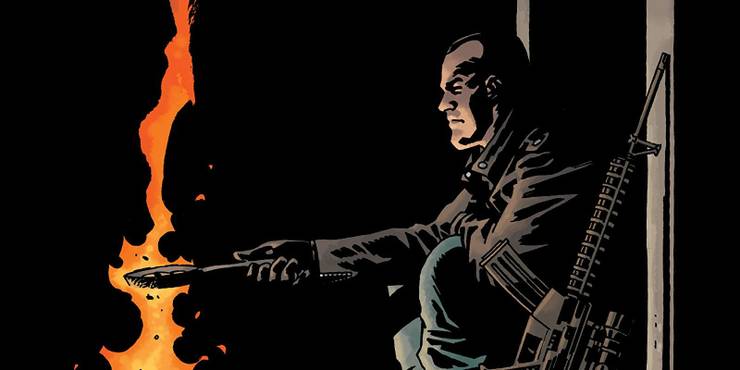
Rick's group has faced many scary antagonists, but Negan might be the most intimidating of them all - and not just because of Lucille. He's wildly intelligent and charismatic, which makes him – without a doubt – one of the most brilliant characters in both the show and comics.
For example, Negan controlled and protected hundreds of like-minded followers as their lawgiver, he adapted to Whisperers' chaotic cult, as well as successfully manipulated their leader. The list goes on and on, as it illustrates his adaptability to new situations and a calculating mind that stands behind Negan's long-term survival. Of course, there's also his dark sense of humor, which seems like a clever way of coping with the depressive reality of the zombie apocalypse.
4 Different: His Motives For Killing Alpha
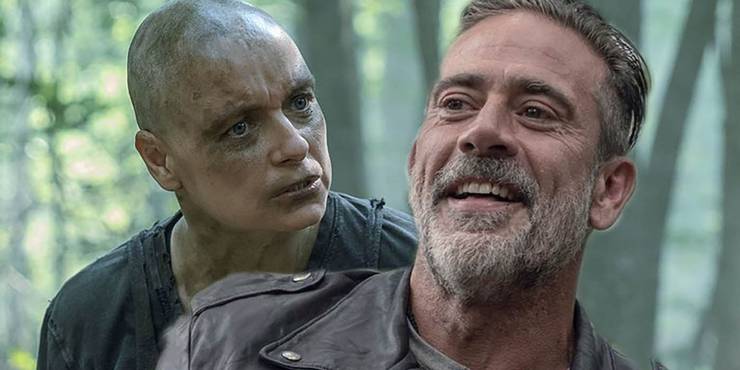
Alpha's death in the comics is quite similar to the onscreen scenario. In both cases, she's decapitated by Negan after he escapes from the prison. However, Negan's motivation to murder a leader of the Whisperers is what differentiates him from the show since he does it to earn Rick's trust - or, in other words, to earn his way back into Alexandria as a free man.
But, in contrast to the comics, the mastermind behind the plan to murder Alpha is Carol. In exchange for Negan's promise to infiltrate the Whisperers, she lets him out of his prison cell and the rest is history. It was indeed a great opportunity to kill two birds with one stone: firstly, to destroy the Whisperers, as well as to (some degree) redeem Negan for his past sins.
3 Same: His Downfall
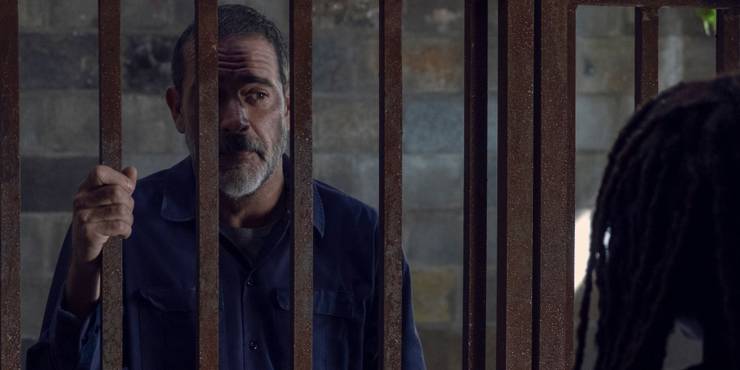
A myriad of original comics' storylines have also made their way to the show, and Negan's degradation from the leader of the Saviors to jailbird is surely one of them. His dramatic onscreen fight with Rick after the Battle of Hilltop differs from the comics in various details, but the aftermath is unchanged.
To be more precise, Rick slits Negan's throat, yet spares his life, ordering the doctor to save him. It's a symbolic act of mercy that represents a step towards a better society in which criminals and villains like Negan would rather rot in jail than as the living dead.
2 Different: Comics' Negan Chooses To Be A Lone Wolf
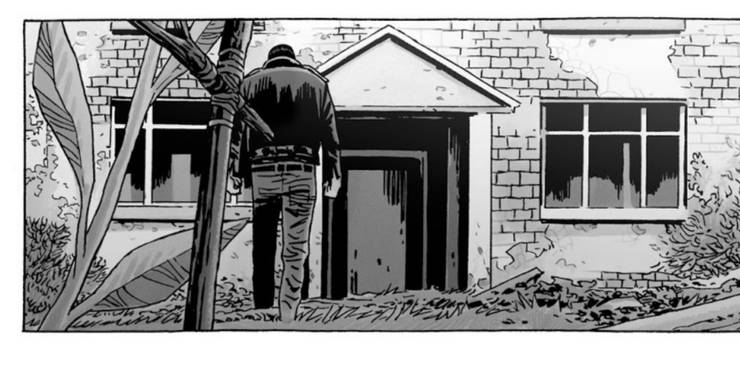
By the end of the comic series, Negan willingly spends years in an abandoned place called Springhaven, living a life of solitude. There, he mostly wastes time talking to flowers or grieving at Lucille's grave, since only Carl sometimes visits him.
On the other hand, the final episode of the show's tenth season, "Here's Negan," implies that his story takes a different course from the source material. After everything he's done to Rick's group and in the wake of dealing with his demons, Negan eventually makes a choice to return to Alexandria and be a part of its community.
1 Same: He's Dealing With Regret
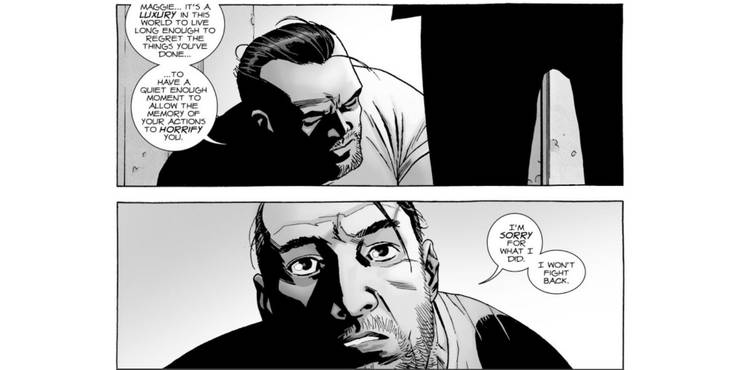
There's a lot of things from Negan's past that he regrets, the first of which is cheating on his wife while she had cancer. As if it isn't depicted enough on the screen (or in the graphic novel), he even admits it to Gabriel at one point of the show, saying how he wishes that he was a better husband.
On top of that, there's also Glenn, who might be Negan's second-biggest regret after Lucille. In the comics (issue #174 in particular), he even apologizes to Maggie for killing her spouse, while begging her to put him out of his misery, whereupon she decides that suffering from guilt and regret is a better punishment for Negan than death.
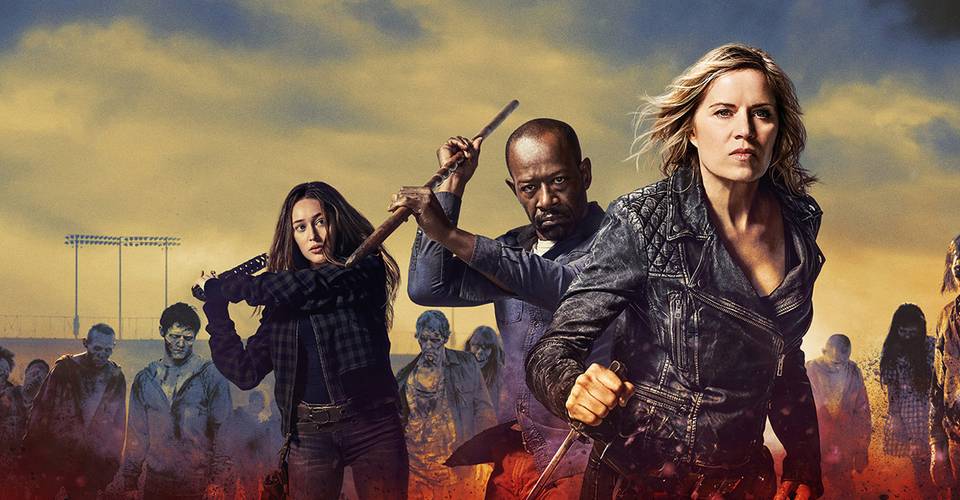
No comments:
Post a Comment